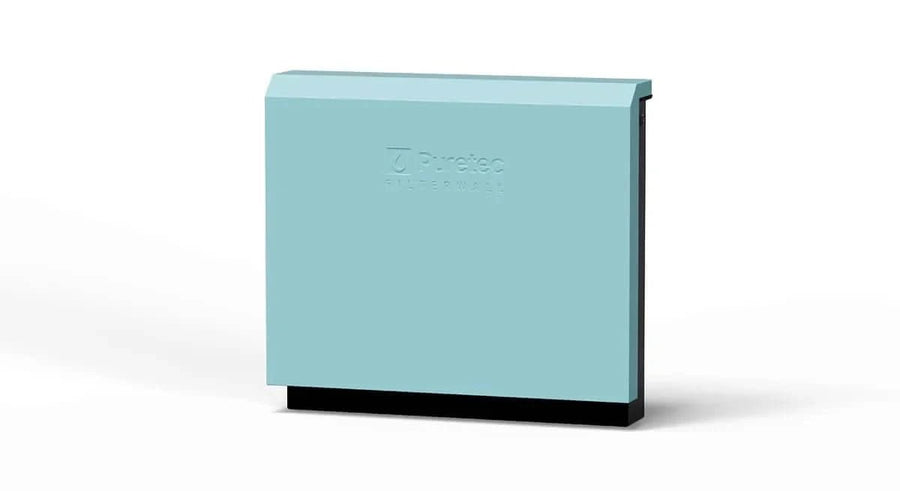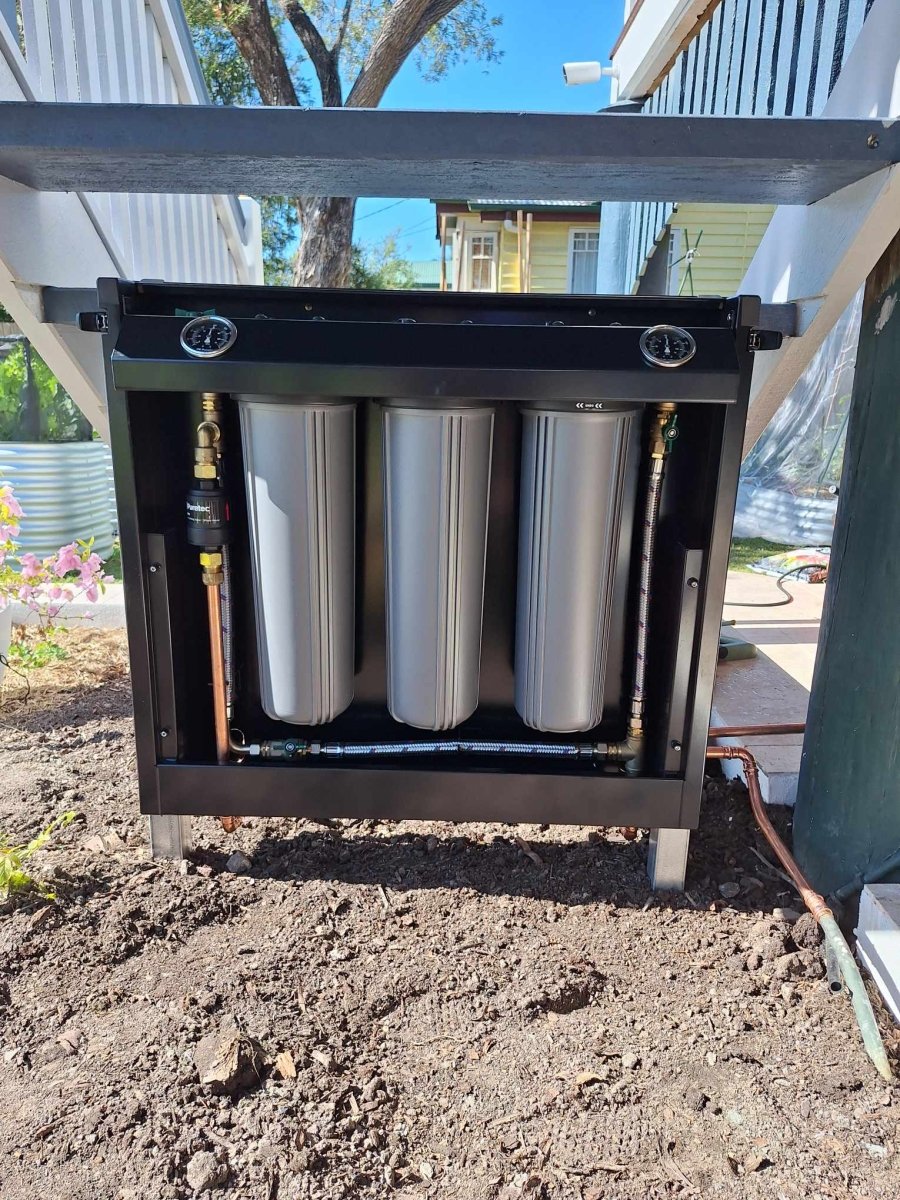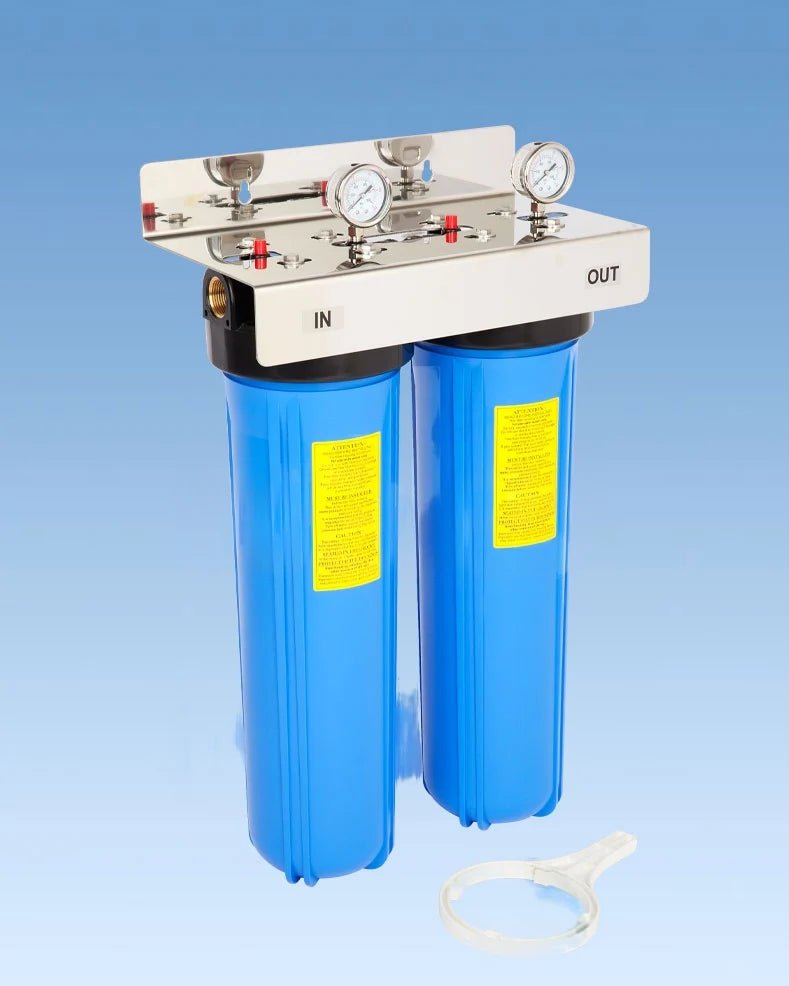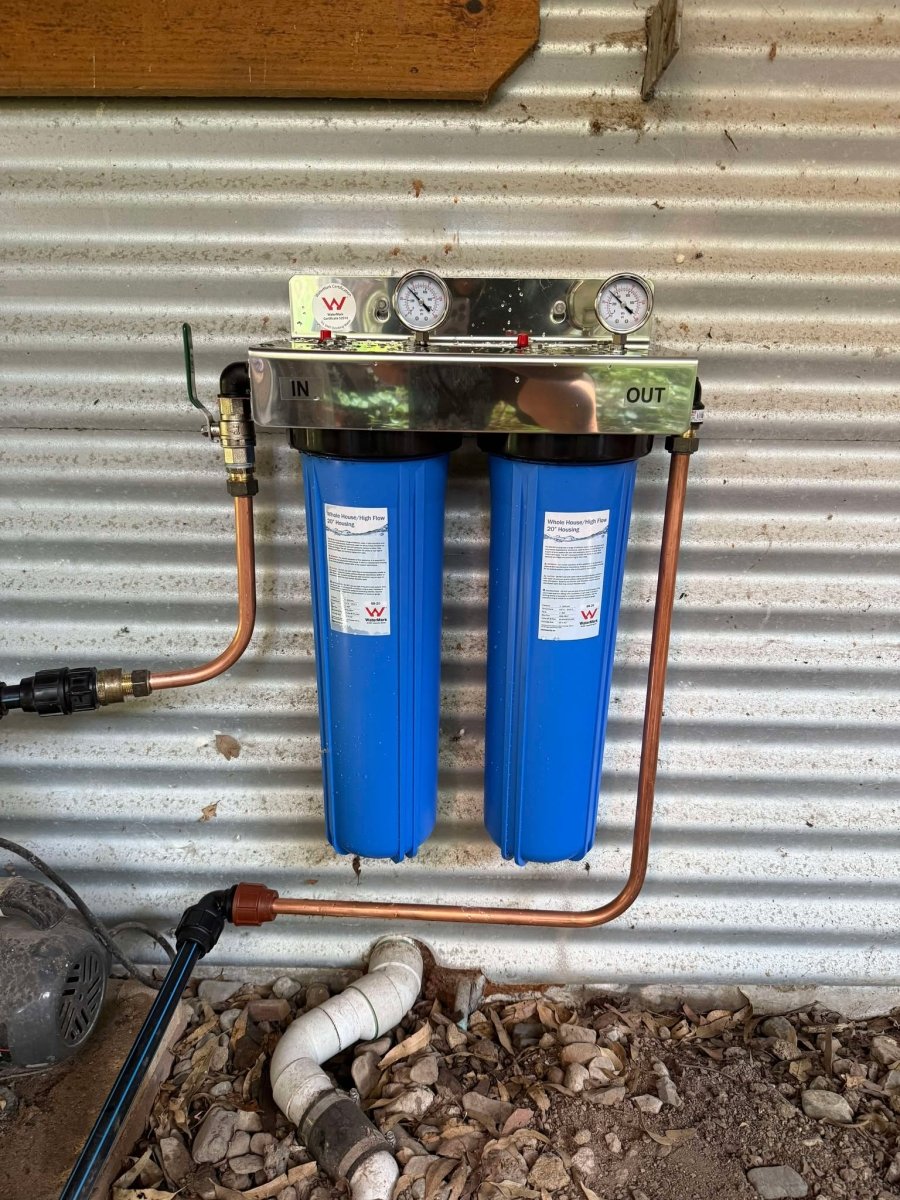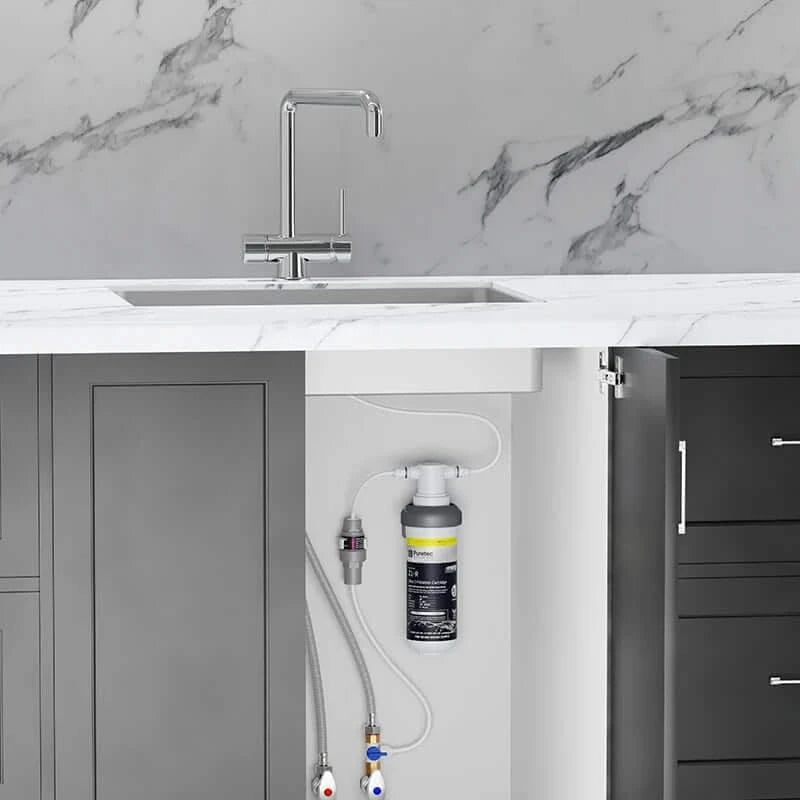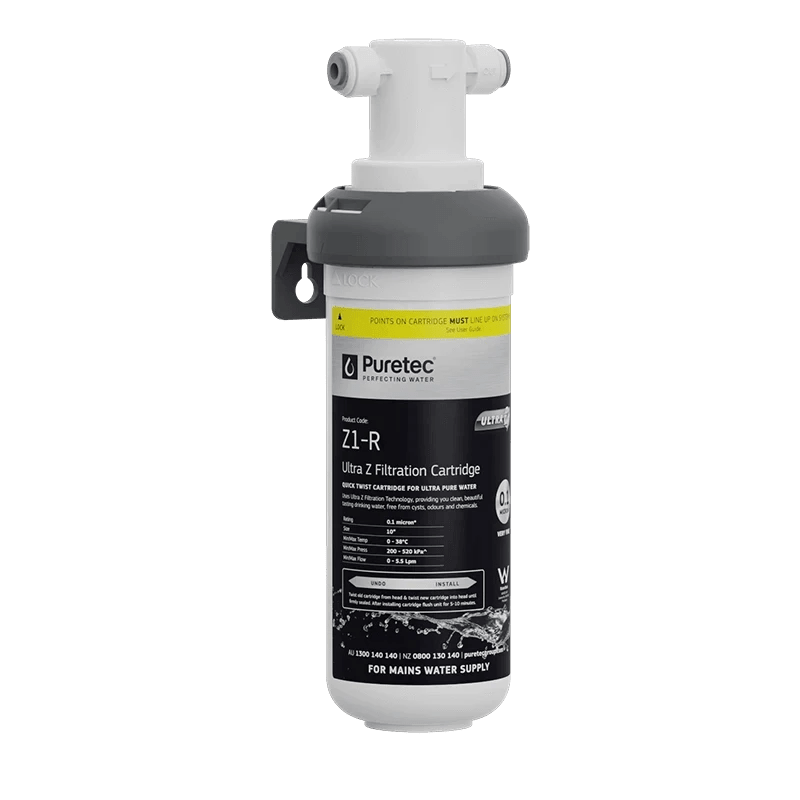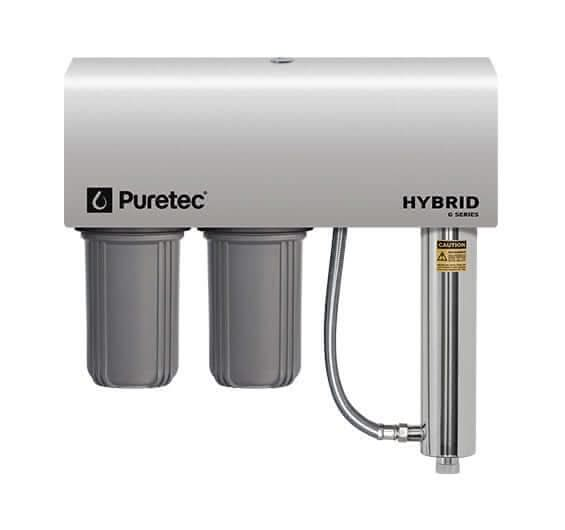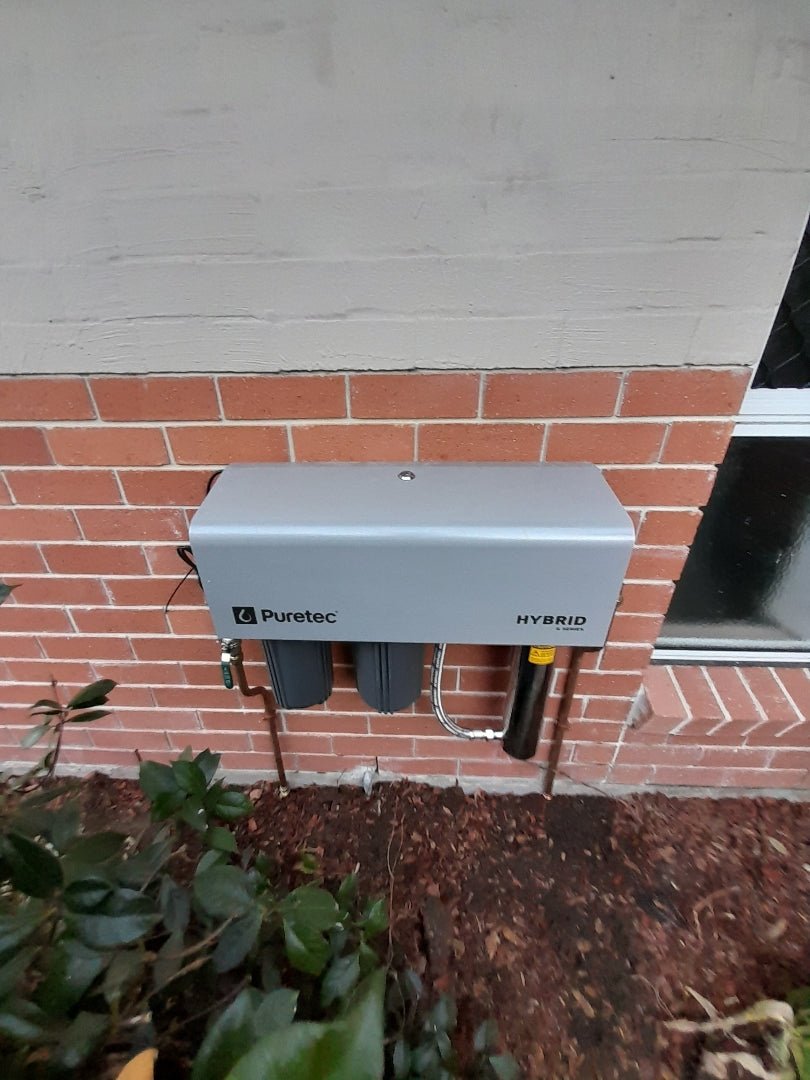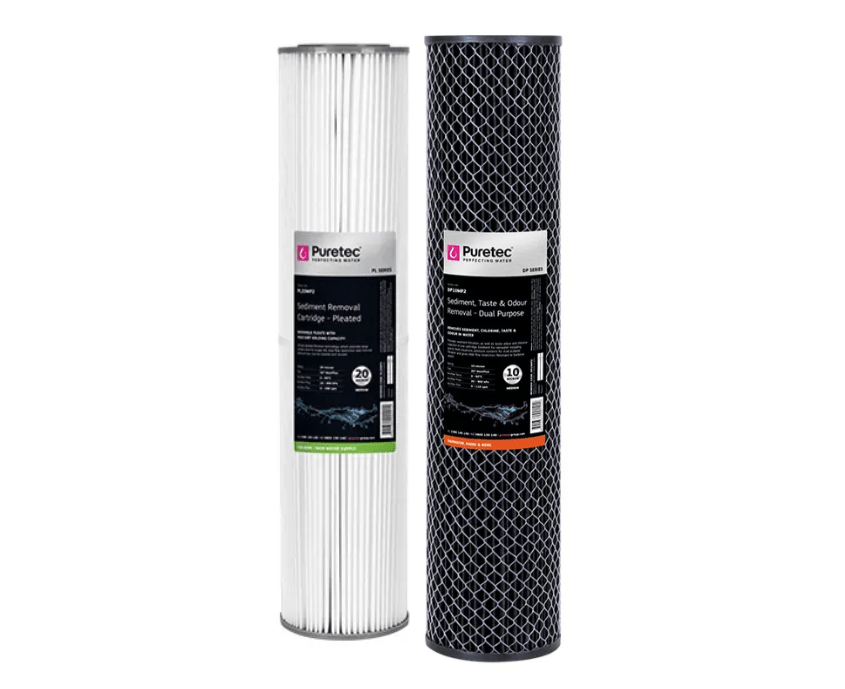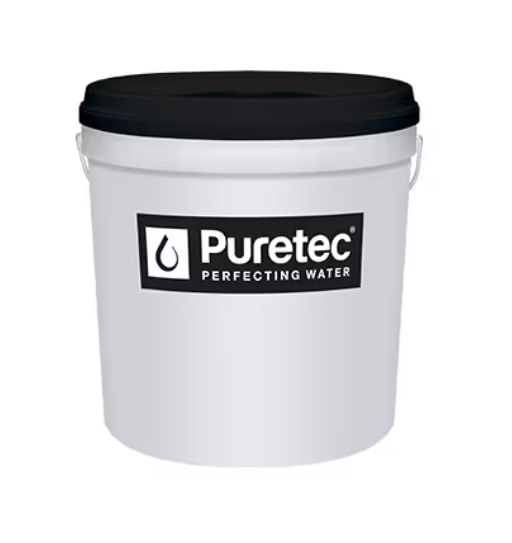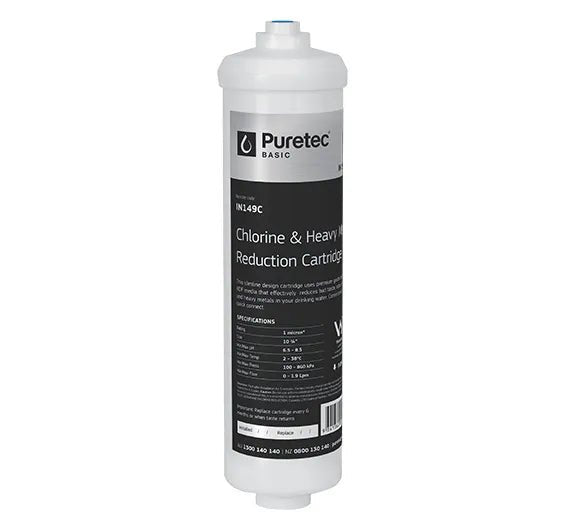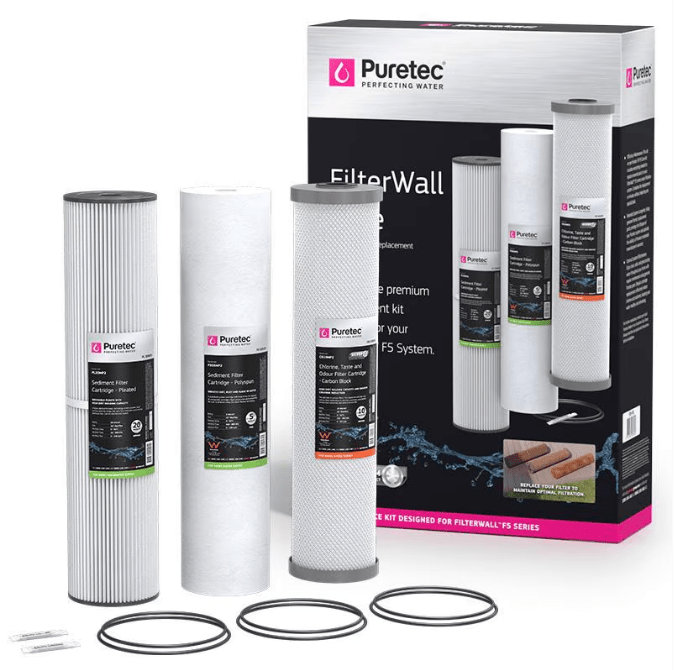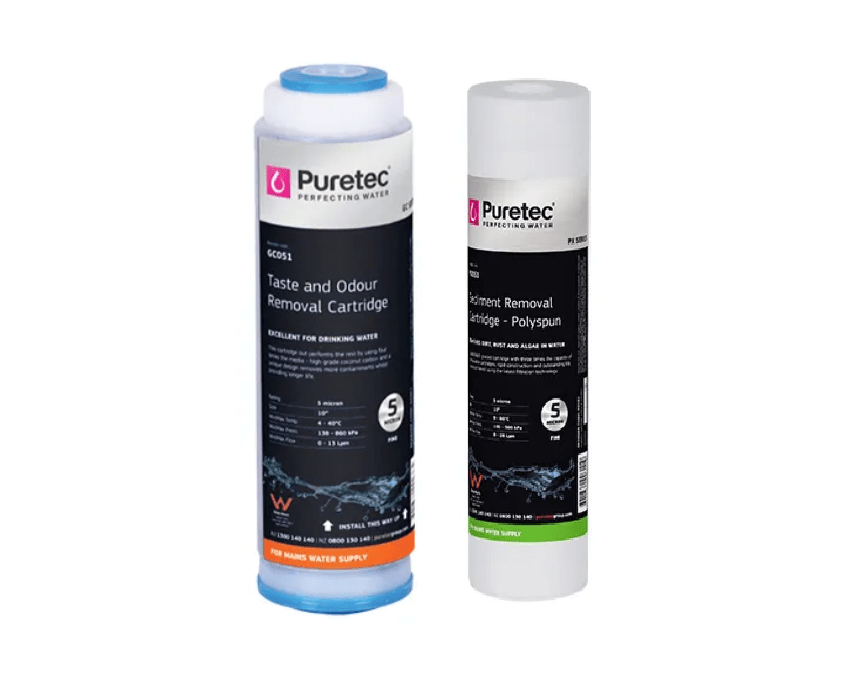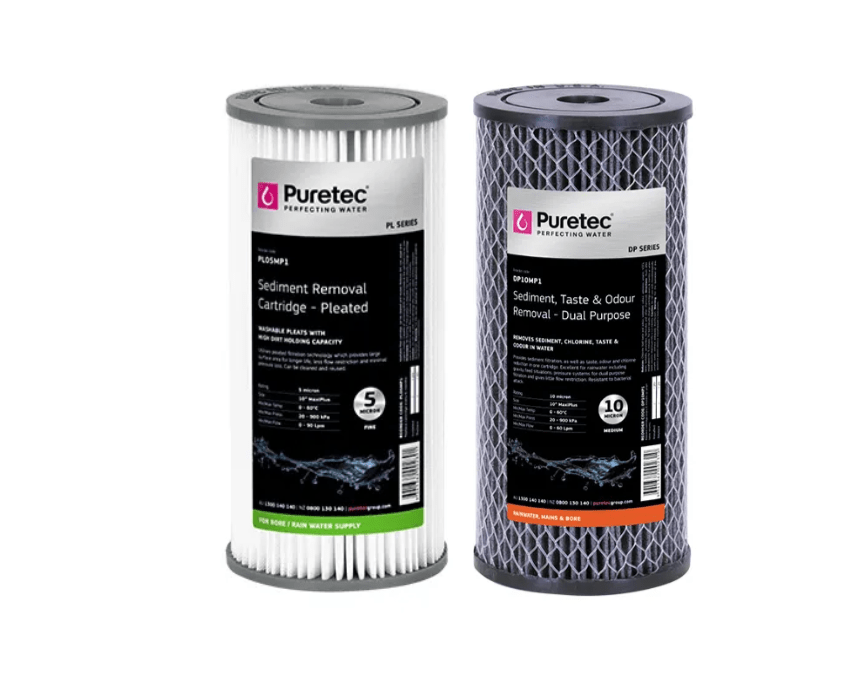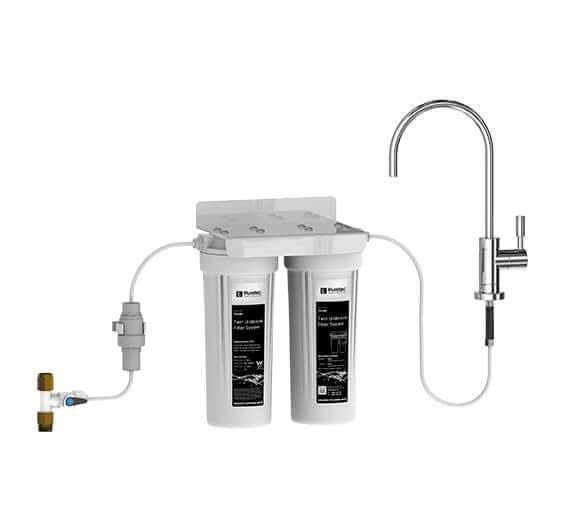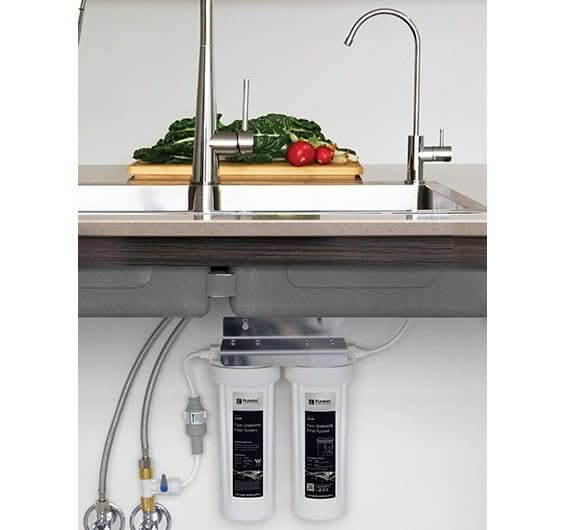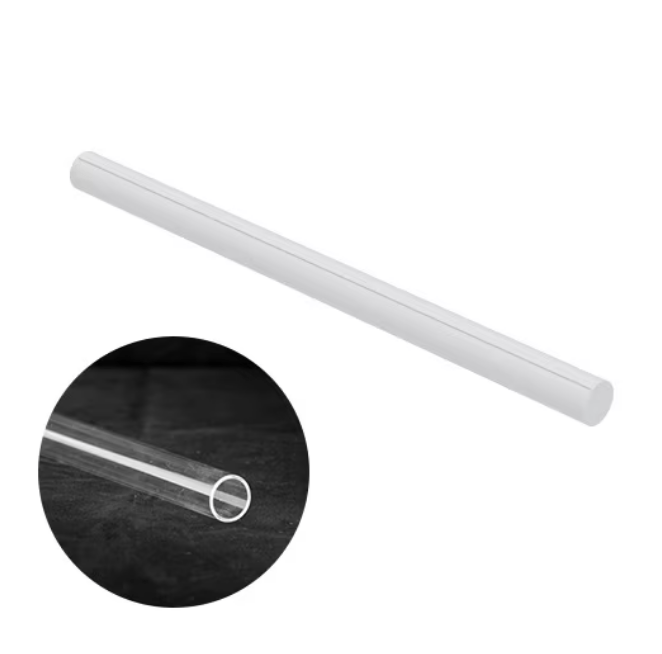Best Fridge Water Filter for Pure, Cold Refreshment
How do you keep your fridge’s water clean and tasting great? A good fridge water filter is the answer. Comparing popular options like the Brita filter can help you understand the performance and compatibility of different systems. Looking at the best water filter pitcher options for 2024 will also help you understand how different filters perform in removing contaminants from tap water. This guide gets straight to the point—what you need to know about choosing, replacing and maintaining fridge water filters to protect your drinking water.
-
Fridge water filters remove impurities such as chemicals, minerals, bacteria and heavy metals from drinking water, taste and safety.
-
Most fridge water filters should be replaced every 6 to 9 months, with reduced water flow and odd tastes being the signs of needing replacement.
-
Using a good fridge water filter means big cost savings and environmental benefits compared to bottled water, by reducing plastic waste and financial and ecological cost of production and disposal.
Fridge Water Filters
Fridge water filters are the unsung heroes of modern refrigeration. These devices installed in many modern fridges are meant to purify water before it’s dispensed or used to make ice. The Brita filter is a popular choice known for its compatibility with various fridge models and its effective performance in removing contaminants. They make sure the water you drink from the fridge is clean, free from various impurities and safe to drink. Fridge filters catch a wide range of impurities, particles, chemicals and heavy metals making the water safe to drink.
Most modern fridges have built-in water filtration systems, designed to work with specific filter models or universal types. An inline water filter specifically designed for fridges is a convenient and cost effective solution to remove fluoride and other impurities from drinking water.
Why You Need a Fridge Filter
A fridge filter is an essential part of your fridge, giving you clean and fresh drinking water. But many people forget to replace their fridge filter regularly. Here are why you need a fridge filter:
-
Removes Impurities: Fridge filters removes impurities such as chlorine, lead and other contaminants from your drinking water, making it safe to drink. The Brita filter is particularly effective at removing contaminants like chlorine and lead, ensuring your water is safe and clean. By removing these harmful substances, you can have peace of mind knowing your water is clean and healthy.
-
Taste and Odor: One of the most obvious benefit of using a fridge filter is the improvement in taste and odor of your drinking water. By removing impurities that can affect the flavor and smell, fridge filters make your water refreshing and enjoyable to drink.
-
Reduces Waterborne Diseases: Fridge filters can reduce the risk of waterborne diseases by removing bacteria, viruses and other microorganisms that can contaminate your drinking water. This is especially important for households with young children, elderly members or individuals with compromised immune systems.
-
Extends Life of Your Fridge: A dirty or clogged fridge filter can reduce your fridge’s efficiency and increase your electricity bill. Replacing your fridge filter regularly helps maintain the appliance’s performance, so it runs smoothly and efficiently. This not only extends the life of your fridge but also saves you on energy cost.
Role of Water Filter in Your Fridge
Fridge water filters improve our drinking water quality. They:
-
Remove impurities not caught by municipal treatments
-
Reduce unwanted chemicals and natural minerals that affect water’s taste and odor
-
Remove bacteria, organic and inorganic particles, heavy metals and chemicals from water
The Brita filter is known for its ability to reduce unwanted chemicals and minerals, improving the taste and odor of your water.
A water filter pitcher also removes contaminants from tap water while preserving desirable minerals.
They promote healthier living.
Using a fridge filter minimizes unpleasant tastes and smells while boosting natural flavors in food and beverages, thus enriching your consumption experience.
How Fridge Filters Work
When it comes to purifying water, fridge filters use a 3-stage process to reduce various contaminants. The 3 stages are:
-
Particle-filtration: Larger sediments like sand and silt are physically trapped on the outside surface of the carbon filter.
-
Micro-filtration: Medium-sized contaminants, like certain chemicals and cysts, are targeted as water flows through the carbon filter.
-
Adsorption-filtration: This stage further removes impurities by adsorbing them onto the surface of the carbon filter.
The Brita filter uses advanced adsorption-filtration technology to effectively remove microscopic contaminants, ensuring clean and safe drinking water.
These 3 stages work together to give you clean and purified water for your fridge. The final stage, adsorption-filtration, allows the activated carbon in the filter to absorb microscopic contaminants, including traces of pharmaceuticals and pesticides. This improves the taste and odor of the water. Filters are the tools that extract impurities like heavy metals, pesticides and residual chemicals from municipal water, giving you safer drinking water.
Removal of chemicals and heavy metals from water by fridge filters can contribute to better health by reducing risk of cancer, cardiovascular disease and nervous system damage. It’s amazing to note that refrigerator water filters often use advanced filtration technology like charcoal or osmosis systems to purify the dispensed water.
Types of Fridge Water Filters
There are several types of fridge water filters available in the market, each with its own filtration process and benefits. Knowing the differences can help you choose the right one for you:
-
Activated Carbon Filters: These filters use activated carbon to remove impurities and improve taste and odor of your drinking water. The carbon’s surface traps contaminants like chlorine, volatile organic compounds (VOCs) and certain pesticides, making the water cleaner and more palatable. The Brita filter, which uses activated carbon, is highly effective at removing impurities and improving the taste and odor of your drinking water.
-
Reverse Osmosis Filters: Reverse osmosis (RO) filters use a semi-permeable membrane to remove a wide range of impurities from your drinking water. This process reduces contaminants like lead, arsenic, nitrates and total dissolved solids (TDS) giving you high quality, purified water.
-
Ion Exchange Filters: Ion exchange filters use resins to remove impurities from your drinking water. These filters are effective in reducing hardness minerals like calcium and magnesium that can cause scale buildup in your refrigerator and affect the taste of your water.
-
Ultraviolet (UV) Filters: UV filters use ultraviolet light to kill bacteria, viruses and other microorganisms that can contaminate your drinking water. This type of filtration is highly effective in ensuring microbiologically safe water, making it perfect for households concerned about waterborne pathogens.
When to Replace Your Fridge Filter
Knowing when to replace your fridge filter is important for its efficiency. Most refrigerator water filters are designed to last between 6 to 9 months under heavy use. Refrigerators usually have an indicator light to alert homeowner when the water filter needs replacement.
The Brita filter typically needs to be replaced every 6 months, and signs of needing replacement include reduced water flow and unusual tastes.
Signs of filter needing replacement are:
-
Reduced water flow
-
Unusual smell or taste
-
Black specks appearance* Cloudiness
-
Small ice cubes
-
Visible particles in water, means filter is clogged or failed
To avoid contamination, it’s better to follow the manufacturer’s guidelines for filter replacement, usually every 6 months.
Best Fridge Filter Brands
Choosing the right fridge filter is essential to have clean drinking water. The Brita filter is also a well-known brand that offers reliable performance and compatibility with various fridge models. LG, Samsung and Whirlpool are top brands known for their high quality fridge filters that improve water taste and remove impurities. Whirlpool fridges and other well-known brands such as Frigidaire and GE have a range of effective and easy to install refrigerator water filters. However, performance and lifespan of fridge filters can vary, so it’s best to consult the guidelines for each specific brand and model.
LG Fridge Filters
LG fridge filters are designed to provide clear and fresh tasting water and ice by reducing contaminants and impurities. They offer various filter models to fit different LG fridge styles, including French door and side-by-side fridges. This means no matter what LG fridge model you have, there’s a filter that will fit and work perfectly.
Samsung Fridge Filters
On the other hand, Samsung fridge filters use a superior carbon block to reduce:
-
chlorine
-
microbial cysts
-
heavy metals
-
chemicals
These filters are NSF International tested and certified to remove multiple contaminants.
Genuine Samsung water filter cartridges are recommended for peak performance and are designed to fit specific Samsung fridge models, including side-by-side and French door fridges. A Samsung fridge filter can filter up to 500 gallons of water before needing to be replaced, making them a reliable choice for your home.
Other Leading Brands Fridge Filters
Other leading brands such as Bosch, Maytag and Fisher & Paykel also offer high quality fridge filters for their respective appliances, including Bosch fridges. Brands Australia’s Bosch fridge filters use Ultra ClarityPro™ technology to reduce contaminants like lead, asbestos, benzene and some pharmaceuticals while preserving beneficial minerals in the water.
The Brita filter is another leading option, known for its effective removal of contaminants and ease of use.
Check out Maytag featured products, such as their fridge filters, which feature Triple Filtration Technology that uses activated carbon to remove various contaminants and improve the taste of the water. Fisher & Paykel’s water filters, also known as Paykel filters, are designed specifically for their fridges, with filter cartridges that fit models starting with E402, E442, RF135 and more to ensure optimal compatibility and performance. These filters not only ensure a proper fit but also remove chemicals and other contaminants to provide cleaner, better tasting and smelling water.
How to Find the Right Fridge Filter for Your Model
Buying a fridge filter is not one size fits all. It’s important to find the right filter that matches your specific refrigerator model. The Brita filter is compatible with many fridge models, making it a versatile choice for households. And while this might seem like a daunting task, there are ways to simplify the process.
What to Look for in a Water Filter
When shopping for a water filter, it’s important to consider several factors to ensure you choose the best for your needs. Here are some key points to look out for:
-
Effectiveness: Look for a filter that can remove a wide range of impurities, including chlorine, lead and other contaminants. Check the filter’s specs and certifications to make sure it meets your water quality requirements. The Brita filter is known for its effectiveness in removing a wide range of impurities, including lead and chlorine.
-
Maintenance: Consider a filter that is easy to maintain and replace. Some filters come with indicator lights that will alert you when it’s time for a replacement, making maintenance hassle free.
-
Cost: Compare the cost of different filters and consider the cost of replacement filters. While some filters may have a higher upfront cost, they might have longer filter life or better performance, making them better value in the long run.
-
Certification: Look for a filter that is certified by a third party organization, such as NSF International. Certification means the filter has been tested and meets specific standards for contaminant reduction and performance.
-
Flow Rate: Consider a filter that has a high flow rate so you have clean drinking water all the time. A higher flow rate means you won’t have to wait long for your water to be filtered, making it more convenient for daily use.
Fridge Filter Find: Identify Compatible Filters
Finding the right water filter for your fridge can be done by:
-
Noting the brand and specific fridge model number
-
Consulting the instruction manual which is likely to have the filter’s model number
-
Searching for OEM water filters which are the original filters manufactured by the fridge company using the fridge brand and model numberOnline search engines for fridge filters allow you to simply enter your water filter’s model number to find compatible options. If you can’t find the model number, customer service representatives from fridge filter websites are available to help you out.
Brand Shop: Browse Wide Range
Once you’ve found the right filter for your fridge, you can buy it from brand specific shops. These guarantee genuine replacement water filters. You can find filters from top brands like:
-
Samsung
-
Fisher and Paykel
-
Aqua Pure
-
Whirlpool
-
Everpure
Websites like Discount Fridge Filters give you access to a wide range of genuine filters so you can find the one you need for your fridge.
Universal vs Brand Specific Filters
When choosing a fridge filter, you’ll come across universal and brand specific filters. Each has its pros and cons. Brand name filters are designed to fit and perform with the corresponding fridge brand and comes with a warranty. The Brita filter is a brand-specific filter that offers reliable performance and compatibility with various fridge models. Universal filters may not have the same fit, might leak or reduce filtration performance. Universal water filters are adaptable and can be used with different fridge brands and models, you don’t need to buy new filters with each fridge change, some have adjustable fittings for various connection types.
However aftermarket filters have concerns with safety and filtration efficiency as some are not certified unlike OEM filters which comes from the original fridge manufacturer. They are generally cheaper than OEM filters but price should not be the only consideration as you need to verify their certification for safety and efficiency. Universal fridge filters have different water capacity and PSI range than OEM filters which affects their lifespan and compatibility, although both have the same temperature range, water flow rate and basic capability to remove contaminants.
Installation and Maintenance Tips for Fridge Filters
After you’ve got your new filter, you need to know how to install and maintain it. Proper installation and maintenance not only ensures your fridge filter works optimally but also extends its lifespan.
Easy Installation Guide
Installing a new fridge water filter is usually done by:
-
Remove the old filter.
-
Prepare the compartment for the new filter.
-
For filters like LG and Samsung, twist and pull out the old filter before installing the new one.
Note: Some filters may require additional steps or tools, so always check the manufacturer’s instructions for your specific model.Some filters like Aqua-Pure, Fisher and Paykel and Everpure have external housing which requires extra effort to change.
Keeping Your Fridge Filter Working at Optimum
Regular maintenance can extend the life of your fridge filter, depending on usage and brand of the filter. A clean water filter contributes to the overall energy efficiency of the fridge by reducing strain on its internal components.
Less energy consumption and maintenance cost are the benefits of keeping the fridge filter clean which ensures smooth operation and prolongs the life of the fridge.
Troubleshooting Common Filter Issues
Despite our best efforts, problems can still occur with fridge filters. Here are some common issues and how to fix them:
-
Unusual noise after filter installation can be resolved by making sure no air bubbles are trapped. To do this, dispense water for several minutes or recheck the installation.
-
Leaks around the filter can be fixed by ensuring O-rings and gaskets are in good condition and properly seated. After making adjustments, test for leaks.
-
If water sprays or leaks after installing a new filter, make sure it’s fully secured and locked in place correctly.
Slow or no water flow issues can be resolved by:
-
Turn off the water supply.
-
Remove the clogged filter to inspect, clean or replace it.
-
Don’t try to clean or backflush refrigerator water filters as this can damage the filter and allow contaminants to pass through.
-
After replacing a fridge filter, use the reset button or process to clear the ‘change filter’ indicator according to the owner’s manual instructions.
Always follow the manufacturer’s manual or guides to resolve issues like slow water flow, bad taste or smell and water leaks.
Testing and Maintenance
Testing and maintaining your water filter is crucial to ensure it continues to provide clean and safe drinking water. Here are some tips to help you test and maintain your water filter:
-
Regular Testing: To ensure your water filter is working effectively, regularly test the water quality. You can use a home water testing kit to check for common contaminants like chlorine, lead, and bacteria. Alternatively, you can send a water sample to a certified laboratory for a more comprehensive analysis.
-
Monitor Water Flow: A noticeable decrease in water flow can indicate that your filter is clogged and needs replacement. Keep an eye on the water flow rate and replace the filter if you notice any significant changes.
-
Check for Odors and Tastes: If your water starts to develop an unusual taste or odor, it may be time to replace the filter. Filters that are past their prime can no longer effectively remove impurities, leading to changes in water quality.
-
Follow Manufacturer’s Guidelines: Always adhere to the manufacturer’s recommendations for filter replacement intervals. Most fridge water filters need to be replaced every 6 to 9 months, but this can vary based on usage and water quality.
-
Clean the Filter Housing: When replacing the filter, take the opportunity to clean the filter housing. This helps prevent the buildup of mold and bacteria, ensuring your water remains clean and safe.
By regularly testing and maintaining your water filter, you can ensure it continues to provide high-quality, filtered water for your household.
Health Benefits of Using a Good Fridge Water Filter
The benefits of using a fridge water filter are:
-
Supplying clean tasting water
-
Removing harmful substances like fluoride and chlorine, heavy metals and contaminants from pesticides
-
The Brita filter is effective at removing harmful substances like fluoride and chlorine, ensuring your water is safe to drink.
-
Coconut shell activated carbon in refrigerator water filters show their superior ability to remove impurities as it has larger surface volume of tiny pores ideal for filtering out chlorine and iron.
Water filters offer:
-
Better tasting water
-
Longer appliance life
-
Support personal health by treating and aligning water quality to health standards* Reducing exposure to chemicals linked to health conditions such as breast cancer which can be found in other options like bottled water.
Water Filters and Body Wellness
Fridge water filters act as a barrier between your body and harmful contaminants. They can remove:
-
chlorine
-
lead
-
mercury
-
pesticides
-
pharmaceuticals
By removing these contaminants, water filters help protect the body from their harm.
Using filtered water for consumption can help reduce healthcare costs by mitigating waterborne illnesses.
Clean Water and Taste and Hydration
Filtered water does more than quench your thirst; it enhances your drinking experience. Refrigerator water filters can:
-
Remove bad tastes and odors from drinking water which can be caused by chemicals and natural minerals present in large quantities.
-
Remove chemicals, heavy metals and other toxins in water.
-
Result in purer, cleaner and fresher taste.
With no funny smells or chemical clouds, filtered water is more appealing to drink and may improve hydration habits.
Understanding TDS in Water
TDS, or Total Dissolved Solids, is a measure of the concentration of dissolved substances in water. It’s an important factor to consider when choosing a water filter, as high TDS levels can affect the taste and quality of your drinking water.
To understand TDS in water, it’s essential to know what it measures. TDS includes a wide range of substances, such as:
-
Minerals: Calcium, magnesium, and potassium are common minerals found in water.
-
Salts: Sodium and chloride are typical salts that contribute to TDS levels.
-
Metals: Lead and mercury are harmful metals that can be present in water.
-
Other Inorganic Compounds: Nitrates and sulfates are examples of other compounds that can be dissolved in water.
A high TDS level can indicate the presence of contaminants in your water, which can affect its taste, odor, and safety. On the other hand, a low TDS level can indicate that your water filter is effective in removing impurities.
When testing for TDS, it’s essential to use a reliable and accurate method. You can use a TDS meter, a handheld device that measures the electrical conductivity of water to estimate the TDS level. Alternatively, you can send a water sample to a laboratory for a detailed analysis.
Understanding TDS levels in your water can help you choose the right water filter and ensure that your drinking water is clean, safe, and tastes great.
Cost Analysis: Buying a Fridge Water Filter
Buying a fridge water filter is not just about having clean and safe drinking water; it’s also a smart financial move. Switching from bottled water to a refrigerator water filter can save you money in the long run considering the cost of single use plastic bottles.
A good quality refrigerator water filter can give you longer filter life, reducing the frequency of buying replacement water filters and associated costs.
Initial Cost vs Long Term Savings
Although the upfront cost of a premium refrigerator water filter like Whirlpool Filter EDR1RXD1 for uninterrupted access to purified drinking water is high, the long term returns are worth it. Buying refrigerator water filters in bulk can save you a lot of money as they don’t expire when stored dry.
Long term benefits of using a fridge filter are reduced replacement costs compared to other water purification methods. And investing in a fridge water filter eliminates the need to buy bottled water frequently, adding convenience and savings over time.
Environmental and Financial Cost of Bottled Water
Although bottled water may seem like a convenient option, it has significant environmental and economic implications. Some of the reasons why bottled water is not a sustainable option are:
-
Bottled water production consumes a lot of non-renewable fossil fuels* Requires a lot of water and can contribute to ecosystem disturbance in extracting spring water
-
Manufacturing plastic bottles for water in the United States alone uses over 17 million barrels of oil every year, polluting and depleting resources
-
Plastic bottles often end up in landfills or the environment due to low recycling rates and takes hundreds of years to decompose and pollute
Considering these, it’s time to look for alternative options for clean and safe drinking water even in countries like Australia.
Bottled water can be up to 2000 times more expensive than tap water and companies selling bottled water from public sources add significant markups. By reducing single use plastic consumption, fridge water filters offer long term savings and sustainable practices.
In conclusion, investing in a good quality fridge water filter has many benefits. From having clean and safe water to drink to enhancing the taste of your water and food to a healthier lifestyle to long term financial and environmental benefits. Whether it’s LG, Samsung, Whirlpool or any other brand, choosing the right filter for your fridge model and maintaining it properly will ensure you get these benefits for years to come.
Are refrigerator water filters worth it?
Refrigerator water filters can remove certain contaminants like lead, chlorine and volatile organic compounds from water but if you want to remove a wider range of contaminants like arsenic and pharmaceuticals, a refrigerator water filter may not be enough.
Do I really need to change the water filter in my refrigerator?
Yes, you need to change the water filter in your refrigerator to make sure the drinking water is free from pollutants, parasites and unwanted molecules. Filter life depends on the brand and usage.
Is it okay to use fridge water without filter?
No, it’s not recommended to use fridge water without filter as it may decrease water and ice quality and shorten the fridge life. Filtered water is clearer and tastes better than unfiltered water.
How long do water filters last in refrigerator?
You should replace your refrigerator water filter every 6 months to ensure clean and fresh tasting water for your family. Using a filter beyond its capacity can result to water quality issues.
How do fridge water filters work?
Fridge water filters work through a 3 stage process of particle-filtration, micro-filtration and adsorption-filtration to reduce contaminants. This ensures the water from your fridge is clean and safe to drink.
Expert Picks
Based on our research and testing, we recommend the following water filters for effectiveness, ease of use and value:
-
Brita Elite Filter: This filter is certified to remove a wide range of impurities including lead, mercury and microplastics. It’s also easy to maintain and replace making it a convenient choice for busy households. Brita Elite Filter has long lasting performance up to 6 months of clean great tasting water. The Brita filter is certified to remove a wide range of impurities, including lead, mercury, and microplastics, making it a reliable choice for clean and safe drinking water.
-
LifeStraw Home Dispenser: This filter is tested to remove dozens of contaminants and has a filter that is more resistant to clogging than any other we’ve tested. LifeStraw Home Dispenser has a sleek design and user friendly features making it a stylish and practical addition to any kitchen.
-
Aqua Pro AIC-K KDF Water Filter: This filter uses long life KDF media and oversized carbon content making it one of the most affordable fridge filters. Aqua Pro AIC-K KDF Water Filter is highly effective in reducing chlorine taste and odor, heavy metals and other contaminants, so you can have clean and refreshing water.
Choose one of these expert picks and enjoy clean, safe and great tasting water and extended life and efficiency of your fridge.




